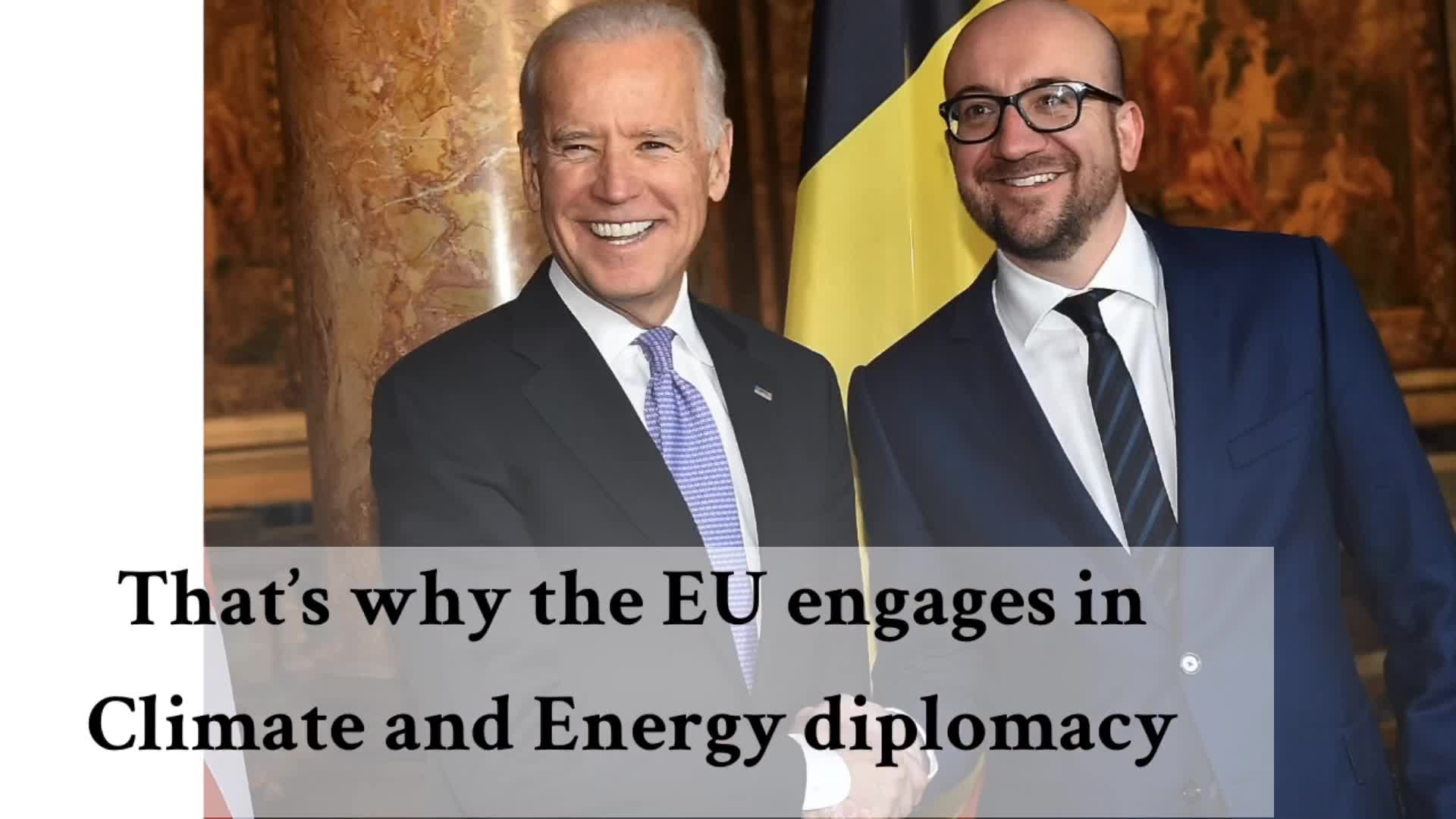
No country can fight climate change alone. That’s why the EU engages in climate diplomacy
The Council today adopted conclusions on ʻClimate and Energy Diplomacy – Delivering on the external dimension of the European Green Dealʼ.
In its conclusions the Council recognises that climate change is an existential threat to humanity. It notes that global climate action still falls short of what is required to achieve the long-term goals of the Paris Agreement and the 2030 Agenda for Sustainable Development.
The Council acknowledges that although Europe is showing leadership and setting an example by stepping up its domestic commitments, there is an urgent need for collective and decisive global action. The coherent pursuit of external policy goals is crucial for the success of the European Green Deal.
The Council calls on all parties to enhance the ambition of the nationally determined contributions and to present long-term low emissions development strategies well ahead of the 26th Conference of the Parties in Glasgow in November 2021, whilst welcoming recent mid-century climate neutrality as well as carbon neutrality commitments, in particular those recently taken by major economies.
The Council also notes the intrinsic link between climate change and security and defence, and the need to strengthen and mainstream work on the climate and security nexus, notably in support of UN activities.
The conclusions confirm the EUʼs continuous commitment to further scale up the mobilisation of international climate finance, including sustainable finance practices, as a contribution to the transition towards climate neutrality. The Council notes, in this context, that the EU is the largest contributor of public climate finance, having doubled its contribution from the 2013 figure to EUR 23.2 billion in 2019.
The Council stresses that EU energy diplomacy will aim, as its primary goal, to accelerate the global energy transition, promoting energy efficiency and renewable technologies, amongst other things. At the same time, the EU’s energy diplomacy will discourage further investments into fossil-fuel-based infrastructure projects in third countries, unless they are aligned with an ambitious climate neutrality pathway, and will support international efforts to reduce the environmental and greenhouse gas impact of existing fossil fuel infrastructure.
The Council also calls for a worldwide phase-out of unabated coal in energy productions, and will launch or support launching international initiatives to reduce methane emissions.
The Council notes that while the energy transition is central to the path towards climate neutrality, it will have a significant impact on societies, economies and geopolitics globally. EU energy diplomacy will continue to play a key role in maintaining and strengthening the energy security and resilience of the EU and its partners.
The conclusions highlight the importance of effective multilateral structures and deepening international cooperation in relevant international fora, whilst identifying the Paris Agreement as the indispensable multilateral framework governing global climate action.